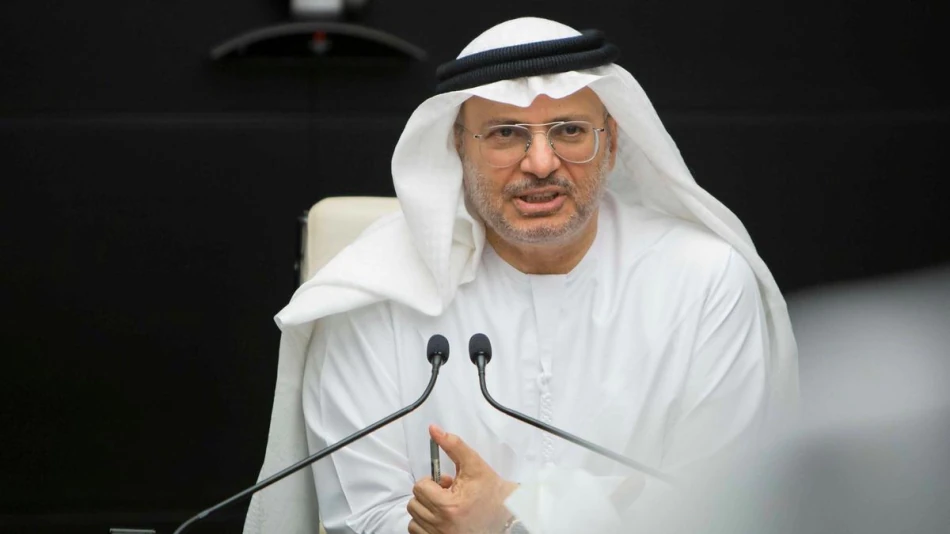
Qirqash: Political Path the Sole Option to End Sudan's Civil War
The Sudanese army's loss of al-Fashir city after a prolonged siege marks a critical turning point that demands a shift toward political solutions rather than continued military action, according to a senior UAE diplomatic advisor. The fall of this strategic city underscores how the ongoing civil war has reached a point where only negotiations can end the conflict.
Dr. Anwar Gargash, diplomatic advisor to the UAE President, said the loss of al-Fashir should serve as a wake-up call for all parties involved. He emphasized that political dialogue represents the only viable path forward to end Sudan's devastating civil war.
The city's fall came after an extended siege that highlighted the military stalemate gripping Sudan. Al-Fashir, located in North Darfur state, had been a key battleground between the Sudanese Armed Forces and the paramilitary Rapid Support Forces since fighting erupted in April 2023.
Gargash pointed to existing international frameworks as potential solutions. He referenced the Quartet's statement and roadmap as internationally backed tools for restoring stability to Sudan. The Quartet includes the UAE, Saudi Arabia, the United States, and the United Kingdom.
The humanitarian crisis adds urgency to calls for political resolution. Gargash warned that Sudan's dire humanitarian situation cannot withstand further escalation. The country faces one of the world's largest displacement crises, with millions of people forced from their homes and widespread food insecurity.
Sudan's conflict has drawn in regional powers and created a complex web of alliances. The war began as a power struggle between the army and the RSF but has evolved into a broader conflict affecting the entire Horn of Africa region.
For international observers, the loss of al-Fashir signals that military solutions have reached their limits. The city's strategic importance made it a symbolic prize, and its fall may force both sides to reconsider their positions.
The UAE's diplomatic push reflects broader regional concerns about Sudan's instability spilling over into neighboring countries. The conflict has already strained resources in Chad, Egypt, and other border nations dealing with refugee flows.
Most Viewed News

 Sara Khaled
Sara Khaled






